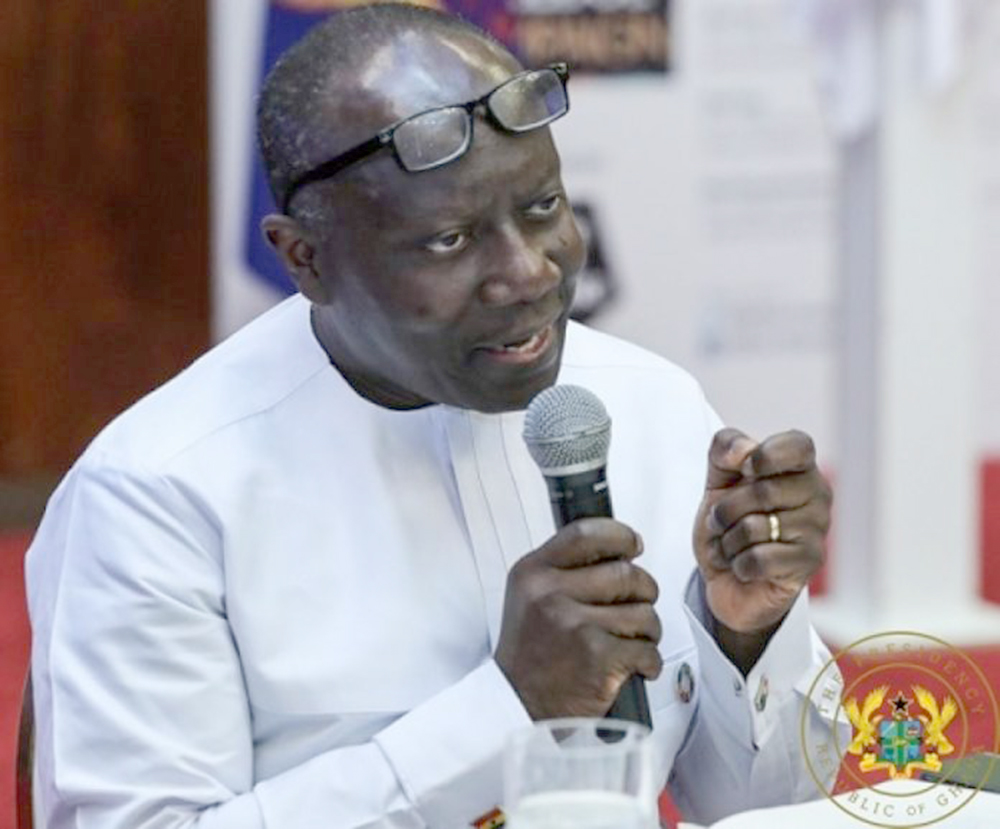
GRA urged to enhance operational efficiency
The Customs Division of the Ghana Revenue Authority (GRA) has been urged to continuously improve its efficiency levels while reducing revenue leakages at the country's ports to the barest minimum.
According to the Minister of Finance, Mr Ken Ofori- Atta, who made the call in a speech read on his behalf, such a move would add on significantly to improve the country's tax to gross domestic product (GDP) ratio from the current 13 per cent to 20 per cent by 2024.
Speaking at a ceremony in Accra to mark International Customs Day, the Finance Minister also underscored the need for customs to take advantage of available data from key institutions such as the Ghana Ports and Harbours Authority (GPHA), the Ghana Airport Company Limited (GACL) and key regulatory bodies to assist in revenue assurance.
The celebration of the day, on the theme, "Scaling up Customs Digital Transformation by Embracing Data Culture and Building a Data Eco-System", brought together representatives from the port stakeholder community and relevant agencies to deliberate on how to operate in a fully digital environment and create a customers’ operational model that exploits data from across the trade ecosystem.
Controls
Mr Ofori-Atta pointed out that the digital reforms undertaken within the port sectors over these past years to address revenue leakage and also help improve revenue mobilisation were in sync with the government’s digitalisation agenda.
The role of technology, he stressed, has brought up innovative ways to implement effective controls in customs processes and procedures.
“That notwithstanding, with the successes chalked, we are confident that there is more the GRA and the Customs Division can do to further enhance its efficiency levels while reducing revenue leakage to the barest minimum”, Mr Ofori-Atta said.
The Minister also stressed the need for customs to endeavour to build an ideal data ecosystem that will not only promote accountability but also improve all of the division’s processes across board.
“The Ministry will continue to support the Division particularly in all customs related matters geared towards revenue mobilisation as well as control, since it is the surest way to grow out the country’s over reliance on foreign aid”, Mr Ofori-Atta said.
GRA
The Commissioner General of the GRA, Rev Ammisshaddai Owusu-Amoah, in his remarks attributed the achievement of the authority’s revenue mobilisation target in 2021 to the successful roll out of the Integrated Customs Management System (ICUMS) at the country’s ports and some 150 customs collection points across the country.
This, he stressed has significantly reduced human intervention in port processes including warehouse management, thereby enhancing compliance and also allowing for the authentication of vehicle chassis.
“All these are aimed at digitalisation to make things easier, but we are not ending there. As part of our reforms, we are working on a data warehouse system for the entire GRA and this will ensure that customs data is integrated into the domestic tax data as well as third party data such as the Driver Vehicle and Licencing Authority (DVLA), Lands Commission among others”, Rev Owusu-Amoah said.
The above, he said, would become a huge database that allows for cross referencing and thereby identifying opportunities for compliance as far as payment of taxes are concerned.
“This project, I must say is far advanced and will be completed by the middle of this year. We will continue to work to ensure that our data ecosystem becomes more customer focused”, the Commissioner General said.
Customs
The Commissioner of Customs, Col Kwadwo Damoah (rtd), who read the message of the Secretary General of the World Customs organisation (WCO) indicated that the rapid evolution of digital data has made it possible for customs bodies over the world to tap into data from other government agencies as well as commercially available databases to their work.
He pointed out that the development of a robust data culture would empower workers of the division to challenge ideas while relying on detailed insights to help in decision making.
Col Damoah gave the assurance that officers of the division would be supported by way of capacity enhancement and hands-on learning experiences to sharpen their skills to deliver the best service in a data driven manner.